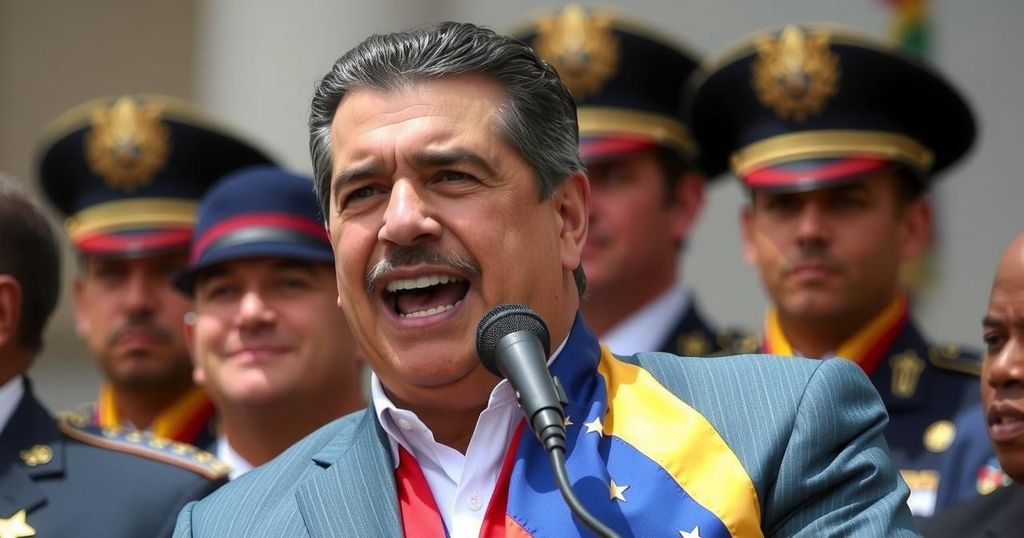Nicolás Maduro has been sworn in for a third term amid allegations of electoral fraud, with the opposition asserting that candidate González won decisively. This election has raised alarms about the state of democracy in Venezuela, leading to recognition of González as president-elect by several nations. The situation is complicated by international reactions and past U.S. policies towards Venezuela.
Nicolás Maduro was sworn in for his third term as Venezuelan president amid accusations of electoral fraud, with no substantiated evidence provided for his claimed victory. This election, described as potentially the largest instance of electoral fraud in modern Latin America, has seen the opposition assert that its candidate, González, won by a significant margin, supported by receipts from voting centers verified by independent observers.
Carolina Jiménez Sandoval, the president of the Washington Office on Latin America, indicated that this situation represents a troubling precedent for democratic governance in the region, whereby a nation can disregard the electoral will of its citizens. Numerous countries, including the United States, have acknowledged González as the legitimate president-elect, while Maduro’s administration has enacted measures to suppress potential dissent, such as closing borders and threatening arrests.
This conflicting political landscape is complex, particularly with the incoming administration of President-elect Donald Trump, which had previously endorsed heavy sanctions against Maduro’s government. Critics of the past ‘maximum-pressure’ approach suggest that such tactics have failed to yield stability or support for democratic transition in Venezuela.
The Biden administration’s recent attempt to negotiate with Maduro for electoral reforms collapsed, underscoring the difficulties in altering the political dynamics in Venezuela. Despite these challenges, support for González remains robust, as opposition figures continue to gather substantial evidence of electoral manipulation by Maduro’s regime, illustrating a deep-rooted struggle for democratic integrity in Venezuela.
The political climate in Venezuela has become increasingly authoritarian under Nicolás Maduro, who has long faced accusations of undermining democracy and conducting fraudulent elections. In this latest election, which observers claim was riddled with irregularities, opposition leader González has emerged as a significant challenger to Maduro, backed by documented evidence of voter support. The crisis in Venezuela is further complicated by international political narratives, particularly regarding how global leaders and foreign policies might influence the country’s democratic prospects and its relations with external powers, especially the United States.
Nicolás Maduro’s inauguration for a third term as president of Venezuela has sparked significant international concern regarding the legitimacy of the electoral process. The opposition’s documented evidence suggests that Maduro may have lost the election, calling into question both the integrity of the election and the future of democracy in Venezuela. As global leaders reconsider their strategies towards Venezuela, the situation remains precarious, with potential social and political repercussions both domestically and internationally.
Original Source: www.washingtonpost.com






